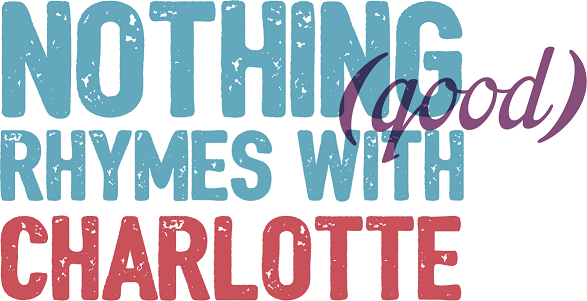Emerald Street Literary Festival: 8 writing tips from great female writers
 Another weekend, another lovely event about writing, and another blog post to tell you what I learnt.
Another weekend, another lovely event about writing, and another blog post to tell you what I learnt.
This time it was the Emerald Street Literary Festival in London. After a hard week and yet another mighty migraine doing its best to keep me indoors, I was very close to just bailing all together and staying at home in the dark. I am so glad I didn’t. The very first session was a panel chat between writers Kate Mosse, Cynthia Bond, Elizabeth McKenzie and Lisa McInerney. And it was lovely.
They talked about the Baileys Women’s Prize for Fiction (which Lisa just won), about the importance of female spaces in literature, and about writing in general. It was exactly what I needed. I burst into tears at one point. Partly because I was exhausted, and partly because it was just so nice to hear such reassuring words from such successful authors.
So that I remember them forever, and others can benefit too, I’ve written down the range of tips they shared.
1.If a story has made its way into your mind and your heart, it’s your responsibility to tell that story – It certainly feels that way. The compulsion to write doesn’t come from wanting to write just anything, it’s about needing to write what you have to say. About not being able to feel comfortable until it’s out there. And now that I know that it’s my responsibility to do it, well, what choice do I have?!
2. If it helps, pretend nobody will ever read it – If you’re nervous about writing exactly what you have to say, pretend you’re just doing it for you. That’ll set you free to write what you want to write, and then, when it’s all down on the page, you can tackle the idea of somebody else actually reading it.
3. If you’re going to have work published, either get a thick skin or crumble – If you want people to read your work, you need to know that some people will love it and some people will not. So you either have to suck that up, or prepare to break. I have only ever received one round of nasty comments on this blog and I will remember it for the rest of my life – but if they thought it was going to stop me writing, they were wrong.
4. Stop feeling guilty for writing, it’s what you’re supposed to be doing – This is the one that made me cry. Lisa McInerney said that if she could go back in time, this is what she would say to herself. It really meant a lot to hear it. I feel guilty when I’m writing and not being sociable or fun or doing my washing. And I feel guilty when I’m not writing because I’m tired or need a break or am suddenly empty of ideas. I think I cried because I felt like I was being given permission to stop feeling this way. Absolutely nobody I care about has ever suggested that I should feel guilty – I’ve made it up all by myself – so this is where that ends.
5. If you want to actually finish writing something, you have to develop a talent for keeping your butt in a chair – So obvious and yet so difficult. I’m excellent at this when a new series of Orange is the New Black is released (FRIDAY!), or there’s a bag of chocolate covered raisins that need my attention, but when I have writing to do, all of a sudden I want to move around. I’m walking back and forth to the fridge, I’m tidying my underwear drawer, and I’m changing the bed – like anybody ever actually wants to do that. As I’ve written before, setting an egg timer is the only thing that can keep me at my desk for a useful period of time. But if you have any other tips I would love to hear them.
6. Imagine your future self walking by and saying KEEP GOING – I like this idea. The only person you really have to answer to is yourself anyway and I can’t imagine, whatever happens in the future, that I’ll ever wish I’d just never bothered trying. I shall now spend my procrastination time imagining my future self popping by for a spot of cheerleading time. Anything that drags me away from the fridge has got to be worth a try…
7. There are times when things will seem hopeless and you’ll think WHY AM I DOING THIS but you can make it work. Trust in that – When I think about it, I know that I have never not been able to find a way to write a sentence that I was struggling with (ironically, this particular sentence took me ages). It might have taken me hours, a few temper tantrums, and a hell of a lot of Cadbury’s but I’ve got there. And yet every time I come up against something tricky, I forget this and commence meltdown. Remember this, friends: everybody struggles. You just have to decide whether you want it enough to make it work, in which case you’ll just need to keep trying until it’s done. (I suggest having the odd scream into a pillow to help you along the way).
8. The quality of a book is about the stuff that isn’t in it, not the stuff that is – Well, thank goodness for that. I am in the very very very early stages of attempting to write some fiction and I already know that if it’s going to be any good at all, most of the stuff I have written so far is going to have to go in the bin. But it sounds like that’s how it starts for everyone so I feel a lot better about it now. And I’m also applying Tip 2 to my writing process at the moment anyway so seeing as nobody’s ever going to read it, I really don’t need to worry…
